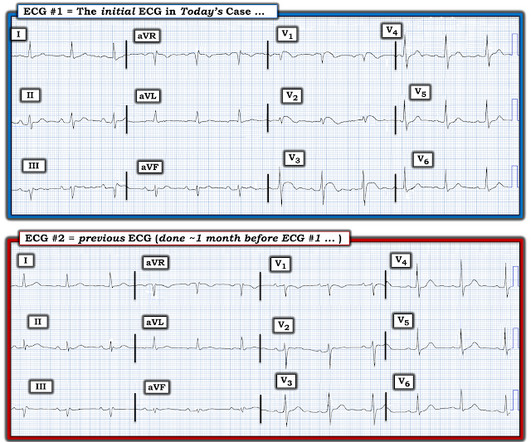Hyperthermia and ST Elevation
Dr. Smith's ECG Blog
JANUARY 30, 2019
Alexandra Schick ( with edits by Dr. Smith ) of an elderly woman who was seen in the ED for altered mental status, hyperthermia, and the initial ECG shown above. This case provides an excellent example of a “pseudo-infarction” ECG produced by a hyperthermia-induced Brugada-1 ECG pattern. Circ Res, 85(9), 803-809. [6]:



















Let's personalize your content